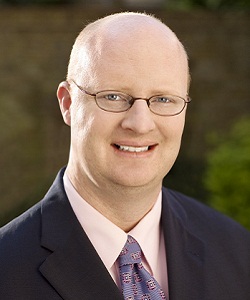Religion and Security in World Affairs Course
Monday, September 12-14, 2011
Location:
Casa Munras Hotel, Monterey, California
Religion and security considerations intersect in multiple, complex ways across the globe and thus are consequential for government policy, strategy, and engagement. Seminar participants explored the multi-dimensional context of religion on the world stage, including its role in the phases of conflict, terrorism, peace operations, and development. An enhanced perspective on these factors informs what has largely been a neglected area in U.S. national security policy: how stakeholders can understand and address urgent contemporary security challenges with religious implications. In sum, this workshop was an opportunity to better understand religion as a set of factors that cannot be ignored in international security and to overcome resistance to engaging this sensitive topic in foreign policy conversations.
SCHEDULE
September 12
The Religious Dynamics of War and Peace | Captain Phil Gwaltney, US Navy; Dennis Hoover, Institute for Global Engagement; Eric Patterson, Georgetown University
Religion and Terrorism | Paul Pillar, Georgetown University
Faith and Religious Actors in Peace Operations: USAID's Religion, Conflict, and Peacebuilding Toolkit | Marci Moberg, United States Agency for International Development
September 13
Religion and Development
Religion and the US 2010 National Security Strategy | William Inboden, University of Texas, Austin; Casey Lucius, Naval Postgraduate School; Eric Patterson, Georgetown University
Stabilization Operations in Highly Religious Societies: The Afghan Case Facilitators | Dayne Nix, Naval Postgraduate School; Eric Patterson, Georgetown University; Roger Mason, Georgetown University
September 14
Understanding US International Religious Freedom Policy | Victoria Alvarado, US Department of State; Thomas Farr, Georgetown University; Touqir Hussain, Georgetown University
Religion and the Five Phases of Conflict | Dayne Nix, Naval Postgraduate School; Pauletta Otis, Marine Corps University; Eric Wester, National Defense University
Key Religious Leader Engagement | Ambassador John Campbell, Council on Foreign Relations; Captain Phil Gwaltney, US Navy; Colonel Micheal Hoyt, US Army; Peter Maki, B3 Solutions



